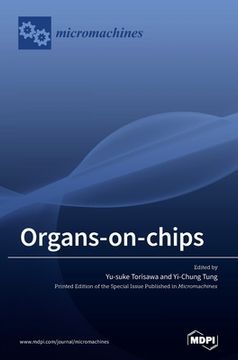Share
Organs-on-chips (in English)
Torisawa, Yu-Suke ; Tung, Yi-Chung (Author)
·
Mdpi AG
· Hardcover
Organs-on-chips (in English) - Torisawa, Yu-Suke ; Tung, Yi-Chung
$ 58.00
$ 72.50
You save: $ 14.50
Choose the list to add your product or create one New List
✓ Product added successfully to the Wishlist.
Go to My WishlistsIt will be shipped from our warehouse between
Monday, June 03 and
Tuesday, June 04.
You will receive it anywhere in United States between 1 and 3 business days after shipment.
Synopsis "Organs-on-chips (in English)"
Recent advances in microsystems technology and cell culture techniques have led to the development of organ-on-chip microdevices that produce tissue-level functionality, not possible with conventional culture models, by recapitulating natural tissue architecture and microenvironmental cues within microfluidic devices. Since the physiological microenvironments in living systems are mostly microfluidic in nature, the use of microfluidic devices facilitates engineering cellular microenvironments; the microfluidic devices allow for control of local chemical gradients and dynamic mechanical forces, which play important roles in cellular viability and function. The organ-on-chip microdevices have great potential to promote drug discovery and development, to model human physiology and disease, and to replace animal models for efficacy and toxicity testing. Recently, induced pluripotent stem (iPS) cells have been leveraged to develop organs-on-chips, which enable various types of organ models and disease models not possible with primary cells and cell lines. This Special Issue seeks to showcase research papers, short communications, and review articles that focus on: (1) microdevices to mimic or control cellular microenvironment; (2) microdevices to evaluate interactions between different organ models; (3) microdevices to maintain iPS cells or iPSC-derived cells; and (4) sensors and techniques to evaluate drug efficacy or toxicity.
- 0% (0)
- 0% (0)
- 0% (0)
- 0% (0)
- 0% (0)
All books in our catalog are Original.
The book is written in English.
The binding of this edition is Hardcover.
✓ Producto agregado correctamente al carro, Ir a Pagar.

